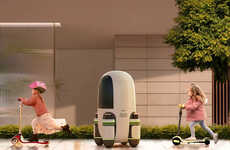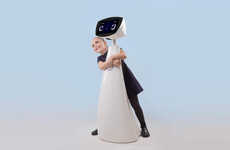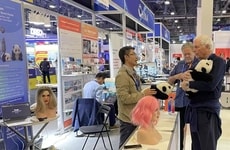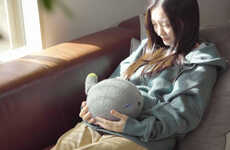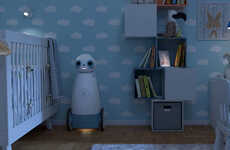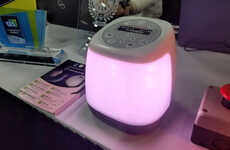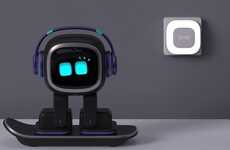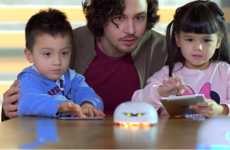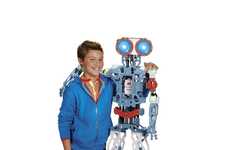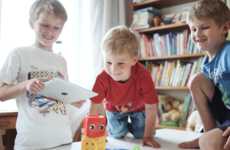
The Diego-San Robot Analyzes Why Infants Smile
Rahul Kalvapalle — September 25, 2015 — Tech
References: ucsdnews.ucsd.edu & gizmag
Diego-San is a creepy-looking baby-faced robot, developed by a group of computer scientists, roboticists and development psychologists at the University of California, San Diego, that was designed to better understand the implications and causes of babies smiling.
One of the key findings of the Diego-San project is that while babies like to be smiled out, they don't themselves put a whole lot of effort into smiling at the people around them in order to elicit warm smiles from them.
The robot found that infants tended to not smile in the first place in situations where the chances of getting a return smile were slim, although it's not clear if this is intentional behavior from the infant.
It is hoped that Diego-San will help psychologists better understand how best to study children who don't display verbal behaviors, such as kids with autism.
One of the key findings of the Diego-San project is that while babies like to be smiled out, they don't themselves put a whole lot of effort into smiling at the people around them in order to elicit warm smiles from them.
The robot found that infants tended to not smile in the first place in situations where the chances of getting a return smile were slim, although it's not clear if this is intentional behavior from the infant.
It is hoped that Diego-San will help psychologists better understand how best to study children who don't display verbal behaviors, such as kids with autism.
Trend Themes
1. Understanding Infant Behavior - The development of baby-faced robots like Diego-San offers new insights into the behavior and emotions of infants.
2. Analyzing Non-verbal Communication - Diego-San's study on infant smiles provides valuable information on non-verbal communication in young children.
3. Advancing Psychological Research - The use of robots like Diego-San enhances the capabilities of psychologists in studying children with communication challenges.
Industry Implications
1. Robotics - The development and application of baby-faced robots in understanding infant behavior create opportunities for innovation in the robotics industry.
2. Childcare and Education - The insights gained from Diego-San's research can benefit the childcare and education industries in designing effective communication strategies for young children.
3. Healthcare - The findings of Diego-San's project can be employed to improve the understanding and support for children with autism in the healthcare industry.
1.1
Score
Popularity
Activity
Freshness

